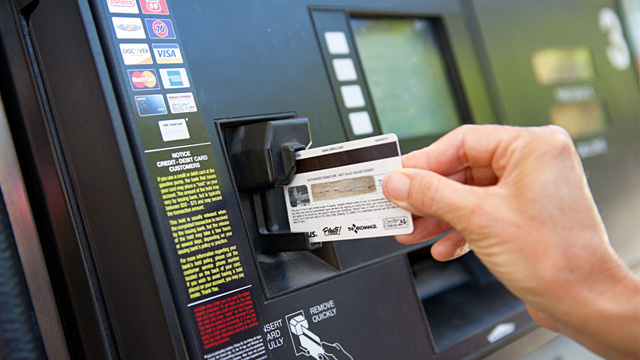 The unrivaled success of the modern identifier that goes by the name of nationalism is that it is reproduced and thereby reinforced at countless, intertwined sites — I recently posted briefly on the World Cup as one such site but it’s hardly the only one.
The unrivaled success of the modern identifier that goes by the name of nationalism is that it is reproduced and thereby reinforced at countless, intertwined sites — I recently posted briefly on the World Cup as one such site but it’s hardly the only one.
Case in point: Canada went over to credit cards with embedded computer chips a few years ago (nations having control over economic transactions that happen within their borders…), but the US hasn’t; this means that every time I visit family in Canada and try to, say, fill up my car I have to identity as having an American credit card, since you can’t pay at the pump (they need to process your card differently).
So you walk into the gas station and say, “It’s an American card” and they say, “I’ll turn the pump on for you but you have to pay inside later.”
Not a big inconvenience, of course (first world problems…), but it’s a little moment of nationalist self-identification — something that happens not only when we sing anthems or make pledges.
What’s ironic to me is that I’m Canadian but, living and working in the U.S. for 20 years means that I’m different enough in that situation, been gone long enough, to need to mark myself to someone working at a gas station, someone I’ve never met nor will likely meet again, as being different from them.
“Hi, I’m a tourist, sort’a.”
“Hi, I’m a foreigner, but not really.
Buying gas, a pretty innocuous activity, thus becomes a moment of conflicted nationalist designation.
Since we now have to enter our zip code at the pump when we pay for gas with a credit card in the U.S., it means that people from elsewhere — say, yet other foreigners and tourists — are also identified as from elsewhere when they’re doing the most mundane of things. What’s good for the goose…
Sure, there might be all kinds of good reasons to do this — preventing credit card fraud, for example, for does a thief know the billing address? — but the effect is that it tells us once again, convinces us just that much more, at a seemingly mundane site (which makes the convincing all the more effective, perhaps), that we’re from here or not, that we do or don’t share something in common with that guy inside at the cash register.
And thus the nation-state infiltrates virtually every social situation — that’s likely why it works so well. We can’t think ourselves into agency without being plotted.
